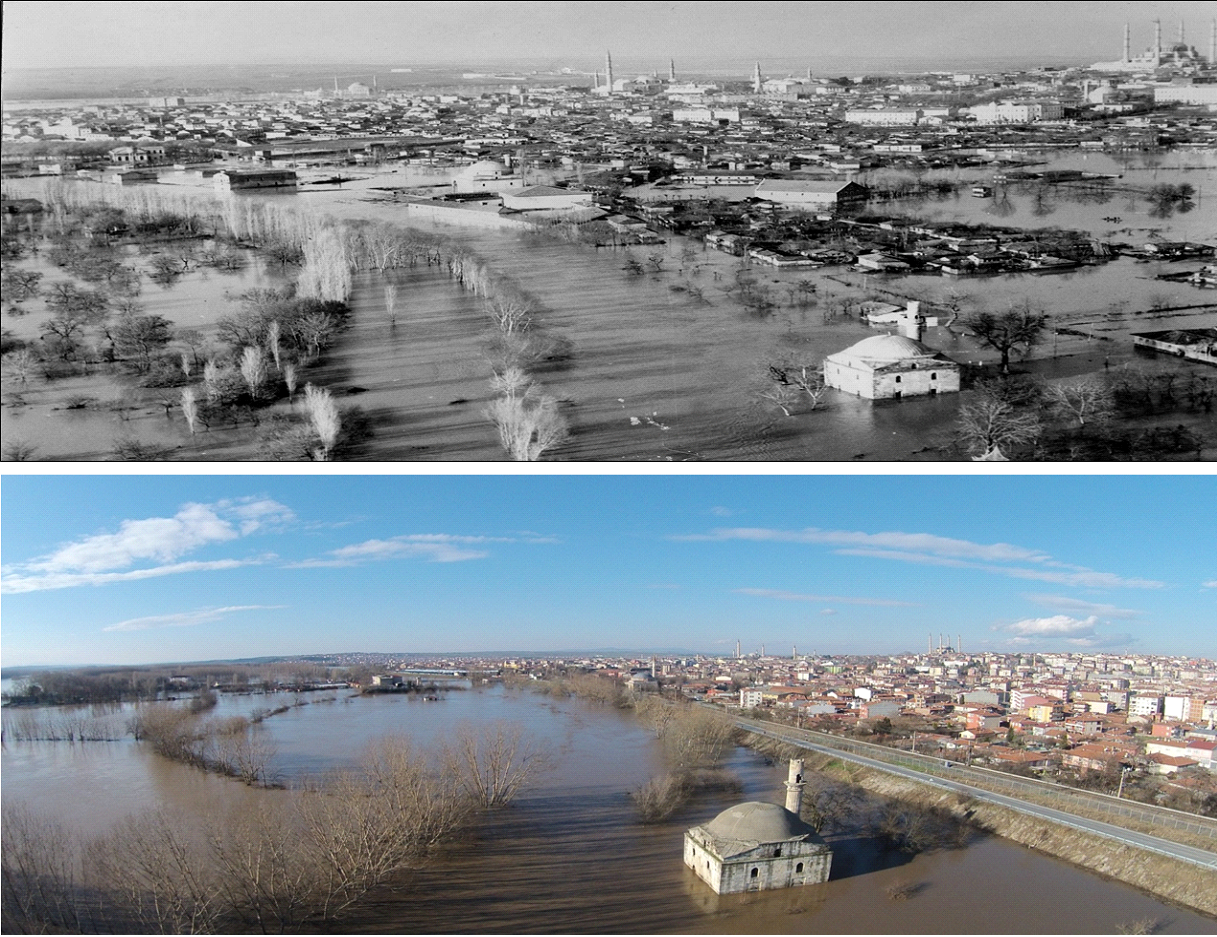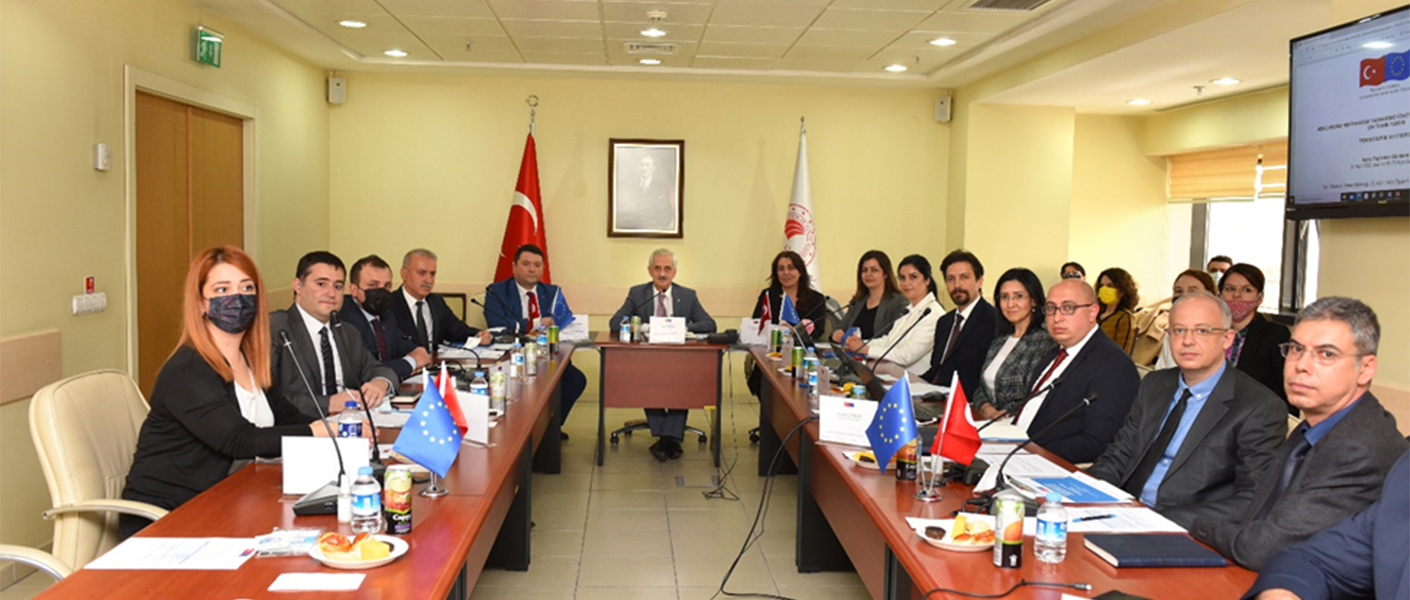Meriç Ergene River Basin

As shown on the map above, the Meriç-Ergene (Maritsa, Evros) is a transboundary river, which is also a border among Türkiye, Greece, and Bulgaria. It is the largest river in the Balkan Peninsula, which originates in Bulgaria, and flows through Türkiye, where it forms the boundary with Greece for 203 km. The river flows through Greece before it empties into the Aegean Sea. The basin has three riparian states: Bulgaria (upstream), Türkiye (downstream) and Greece (downstream). Further, 65% of its catchment area is within the borders of Bulgaria while the remaining 35% of its catchment area is distributed as 28% and 7% within the borders of Türkiye and Greece, respectively. A portion of the lower part of the Meriç River constitutes the Türkiye-Greece border, and the other portion of it flows in Türkiye.
The Meriç River is fed by rain and snow melt. Climatic characteristics are important for the river’s flow rate and regime. Although the river flows throughout the year, it is possible to observe flow rate shifts depending on the temperature and precipitation features of the river Basin. The flow rate and regime characteristics are controlled by multiple dams in Bulgaria, and the weather conditions are other important features of the river.
Concerning the economic activity, the Meriç-Ergene River Basin hosts an extensive agricultural production. Further, the basin is also highly industrialised and densely populated with the largest cities. The provinces in Türkiye include Edirne, Kırklareli and Tekirdağ.
Further, a small part of İstanbul is also part of the basin border although there is no data if there is any population from İstanbul is part of the Meriç-Ergene basin as portrayed in the figure below.
Meriç’s two largest tributaries that are close to Edirne are the Tunca and Arda, which join the main flow of the Meriç. Throughout the Meriç catchment area, a significant number of reservoirs and weirs have been constructed for irrigation and hydroelectricity production purposes. In this respect, the sole upstream riparian, Bulgaria exploits the hydropower potential of rivers in the basin while downstream countries are devoid of this opportunity because of topographical differences across the basin. Downstream countries mostly rely on basin’s water supply for irrigation and urban and rural drinking water purposes.
Due to the location of Türkiye, which is downstream of Meriç-Ergene River Basin, Türkiye has been faced floods. Usually the city where three branches of the basin join, Edirne, is severely affected by the floods, along with the villages near the Greek-Turkish border which results in high socio-economic cost for the region.
The climate change has already exacerbated the flooding problem in the World, and it is also the case for the area of Meriç-Ergene River basin. Before focusing on the transboundary problem in details, it is crucial to present an overview on the climate change impacts in the basin area since a continuous increase in average temperatures in the basin area is expected. 

This website was created and maintained with financial support of the European Union and the Republic of Türkiye. Its contents are the sole responsibility of the consortium led by DAI. It does not necessarily reflect the views of the Republic of Türkiye and the European Union.

